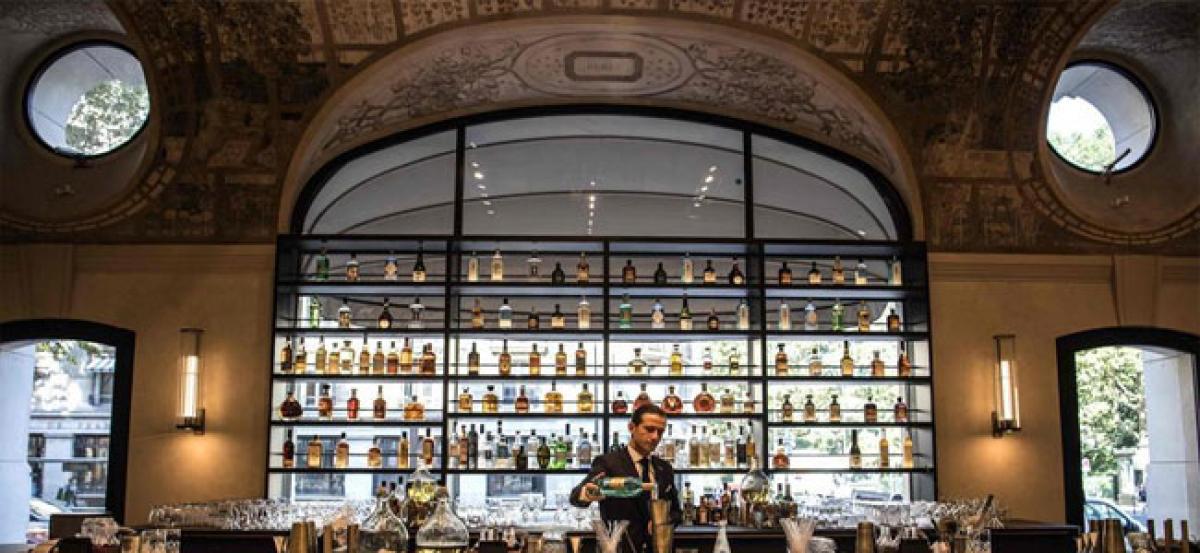Paris’ iconic Hotel Lutetia reopens after 200 million-euro makeover

The Lutetia hotel in Paris was once the haunt of Picasso and Hemingway and served as a refugee camp post World War II It reopens this week after four years of renovations and is hoping to win a palace label soon
The Lutetia hotel in Paris was once the haunt of Picasso and Hemingway and served as a refugee camp post World War II. It reopens this week after four years of renovations and is hoping to win a “palace” label soon.
The Lutetia hotel in Paris, favoured by the likes of Picasso and Hemingway, reopens this week after four years of costly renovations that it hopes will win it the “palace” label reserved for the most opulent of French lodgings. Steeped in history, from its occupation by Nazi intelligence agents to its years as a hangout for celebrity intellectuals in the 1950s, the Lutetia hasn’t changed much on the outside at least.
The new-look hotel in the chic Saint-Germain-des-Pres neighbourhood has retained its imposing art deco facade, lined with elegant wrought iron balconies overhung with carved stone grapevines. But the 200-million-euro ($235-million) makeover has allowed the hotel to spruce up its original frescos and stucco work, decking out the 184 rooms and suites in understated luxury.
Hotel manager Jean-Luc Cousty said the goal was to create a contemporary hotel by enhancing everything that was historic. “The Lutetia has not lost its soul, and one of the big triumphs of architect Jean-Michel Wilmotte is that natural light has been brought in throughout,” he said.
The first guests are due to walk through its corridors — lined with dark eucalyptus wood — from Thursday. There is a softly lit 17-metre swimming pool, while the rooms feature discreet art-deco chandeliers and a lot of white marble: the baths were carved out of a 1.9 tonne block. While the brasserie will not reopen until autumn, guests can sip a cocktail in the Josephine bar, whose frescos, previously forgotten under layers of wallpaper and paint, have been restored after 17,000 hours of painstaking work.
Opened in 1910, the Lutetia owes its existence to its neighbour Bon Marche, one of the first department stores in the world. Marguerite Boucicaut, its owner, had the hotel built to provide accommodation for her wealthy customers travelling up to Paris from the provinces for shopping trips. Situated in the centre of the Left Bank, the heart of the French intellectual scene, it quickly became a hub of philosophical and artistic debate.
During the Nazi occupation of Paris, the hotel was requisitioned by German forces and used to host and entertain troops. Upon the liberation, wartime leader General Charles de Gaulle — who himself had honeymooned at the Lutetia — ordered the hotel to take in thousands of refugees. Post-war, it swiftly regained its reputation as a place to see and be seen, with artists like Pablo Picasso and Henri Matisse haunting its hallways.
James Joyce famously wrote part of Ulysees there — with the help of editing suggestions from Ernest Hemingway — and the dancer Josephine Baker was also a regular. Currently a four-star hotel, the Lutetia has applied for a fifth — the next step before getting the “palace” label, which is currently held by 10 top Parisian hotels including the Bristol and Peninsula. “The Lutetia offers something different, it wouldn’t do any harm to the other palaces because its clientele is different,” said Christian Mantei, head of national tourism development agency Atout France.
Cousty said the Lutetia attracted hardly any of the ultra-rich Middle Eastern and Russian customers who prefer to stay in the ‘Golden Triangle’, an area near the Champs-Elysees boulevard on the other side of the river. While still out of reach for all but the wealthiest, he said the Lutetia was aiming for “more accessible” pricing than those rivals on the Right Bank, with an average price of 800 euros.
Bought in 2010 by Israeli group Alrov, the Lutetia is seeking to double its turnover — which stood at 30 million euros before the renovation works — within three or four years of reopening. At least the timing is good: after two years during which Paris was scarred by terror attacks, tourists returned to the French capital in record numbers in 2017, with 33.8 million hotel rooms booked.














